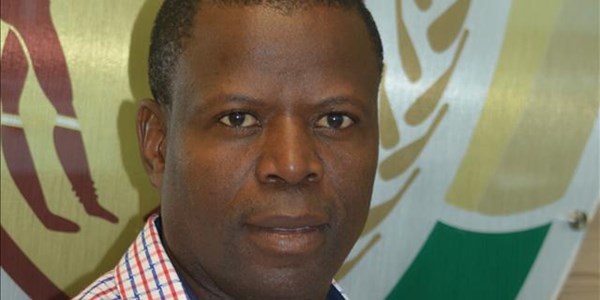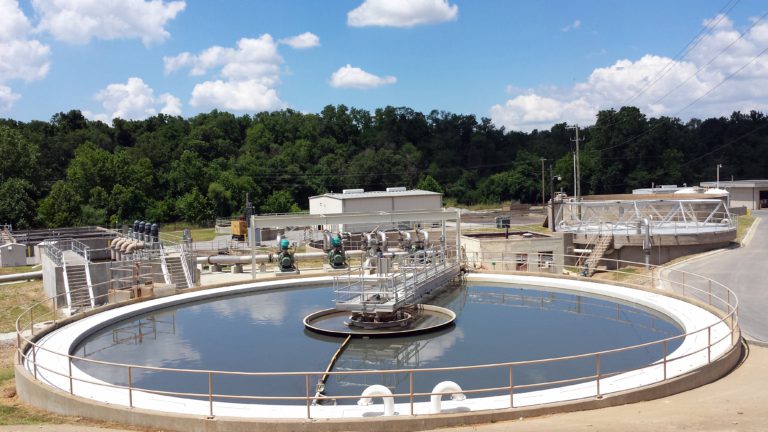News Talk
OPINION: Wastewater treatment─── 14:08 Mon, 20 Feb 2017

Over the years, the quality of water resources has deteriorated due to poor effluent discharge
The Department of Water and Sanitation under Minister Nomvula Mokonyane is responsible for regulation of water and sanitation including wastewater treatment plants in South Africa to ensure service delivery to communities in a sustainable manner.
 Wastewater treatment plants are regulated by the National Water Act to comply with Green Drop certification.
Wastewater treatment plants are regulated by the National Water Act to comply with Green Drop certification.
Chapter 7 of the Constitution inter alia, provides that Local Government provide safe and healthy environment to its community in a sustainable manner. Municipal waste water treatment plants are registered in Water and Sanitation database for regulatory system known as Green Drop System. That measures effluent compliance released by waste water treatment works in different municipalities across the country.
Schedule 4B of the Constitution imposes the function of delivering water, sanitation and wastewater treatment services on Municipalities. This responsibility rests on District Municipalities but may be performed by a Local Municipality if the district municipality lacks the capacity to execute the function.
Community members as end-user households share the very same responsibility for good sanitation and effective sanitation practices. Refrain from flushing foreign objects in toilets, sewerage pipes and vandalism of manhole ultimately leading to network blockages. Across the country we have a number of 152 water service authorities operating and managing 824 wastewater treatment plants mainly under local government. The Water Services Authority has ultimate responsibility for ensuring that end-users have access to water and sanitation services within its area of jurisdiction.
Water Services Authorities (WSA) is appointed by (DWS) Minister Mokonyane as mandated by National Water Services Act to supply and avail drinking water to the intended community. Water borne sanitation systems require an abundant and reliable supply of water on continuous basis for hygienic sanitation purposes. The Department of Water and Sanitation thru Green drop Certification program monitor compliance of Water Services Authority on yearly base under the umbrella of Green Drop Certification.
The Green Drop regulation program seeks to identify and develop the core competencies required for the sector that if strengthened, will gradually and sustainably improve the level of wastewater management in South Africa. The strategy revolves around the identification of average performing municipalities who consequently correct identified shortcomings, as well as the introduction of competitiveness amongst the municipalities by benchmarking and public acknowledgement by the Minister of (DWS).
This form of incentive and risk-based regulation holds the intent to synergise with the current goodwill showcased by municipalities and existing Government support programmes to give the focus, commitment and planning needed. Since the inception of the programme the Department has seen much significance improvement in compliance by water authorities.
There are 9 key performance areas used to evaluate Green Drop Certification. Process controllers and supervisors must be registered according to (Regulation 2834) with DWS. Maintenance team and management must at all times be able to provide proof of competence on reticulation network and pump stations for full scope of service. Operational monitoring and compliant is of essence during the evaluation process, whereby proof of frequent sampling on inflow, outflow, raw sludge and all points of discharge are monitored as per authorization.
Compliant data must be submitted on monthly basis as per Water Service Act (Section 62, Section 9 Regulations). All data compliance result is required on monthly basis with physical 90%, chemical 90% and microbiological compliance also at 90%. Some of critical key areas include quality compliance, failure response, and management, bylaws, and treatment, collector capacity and solid sludge management practice.
The wastewater system relies on the force of gravity to move sewage from home to the treatment plant. As a result wastewater-treatment plants are located on low ground, often near a river into which treated water can be released. If the plant is built above the ground level wastewater has to be pumped up to the aeration tanks. From there on gravity takes over to move wastewater through treatment process.
Wastewater treatment is considered water use because it is interconnected with other uses of water. Much of water is used by homes, industries and businesses. It is important such water be treated accordingly before released back to the environment. Effluent has to match standard set up by the Department of Water and Sanitation Green Drop Certification.
On daily basis wastewater treatment plants treat billions of gallons of wastewater and sewage produced every day before releasing it back to the rivers streams and dams for reuse again. Well maintained treatment plants reduce pollutants in wastewater to a level nature can handle. Waste water treatments are no exempt to vandalism currently sweeping across the country on infrastructure. IT is of essence to include security on operational and maintenance plan in each treatment plant due to high level of crime and vandalism on infrastructure meant for service delivery. That requires 24 hours onsite visible security to curb vandalism and theft to infrastructure worth billions of rands.
By Marcus Monyakeni













